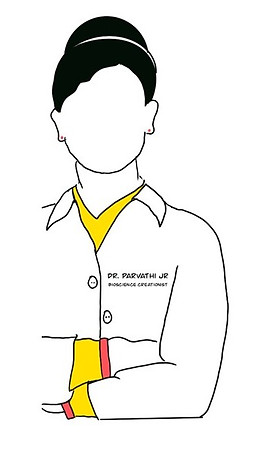The Path to dose!
The Path to Dose!


The convergence of two major global challenges - COVID19 and Climate Change - one that arrived without warning and the other that had warning signs throughout the decades, has been transformative in various aspects. It compelled us to introspect and reevaluate our priorities and roles in contributing to a better-informed, sustainable, and healthier world. I distinctly remember a time when I felt mentally overwhelmed by information overload and a barrage of miscommunication, which led me to question my roles as a teacher, researcher, and human being. Effective communication is always the key!
During that period, I stumbled upon the draft policy of Scientific Social Responsibility (SSR) by the Department of Science and Technology, Government of India. This visionary policy addressed the need of the hour by emphasizing the importance of knowledge-building and scientific communication, devoid of jargon, to enable the general audience to comprehend the significance and outcomes of research. After all, they are the stakeholders, and the research we conduct serves humanity and the environment. SSR had the potential to bridge the gap between science and society, connecting multiple stakeholders to drive impactful changes. This discovery led me to delve deeper into the realm of science communication and the communicators who were making a meaningful impact. What was notably lacking were individuals who could effectively bridge the worlds of science education and science communication. The SSR policy was officially published in May 2022. However, there were substantial challenges in implementing SSR - primarily centered around building perception and fostering willingness for change. The common misconception that science communication is "less scientific" and only suitable for those with creativity, but lacking the ability to conduct 'actual' research, was prevalent. Comments such as "Creativity and communication are better suited for marketing and industry, not academia and research" and "Why provide a lay summary when there is an abstract?" were common. I encountered such personal anecdotes and hearsay frequently. Educational and research organizations often prefer to focus on what they excel at - teaching and developing researcher driven work - without investing much effort into innovative pedagogies or community-driven activities.
Concurrently, the professional challenges and leadership opportunities in my workplace expanded my perspective and underscored the importance of leading by example. I recognized that being the cultural change is more rewarding than merely requesting for implementing it. Armed with basic drawing skills and an Apple iPad (equipped with Procreate), 'Science in Doses' was born.
Within this initiative, I encourage research interns, Ph.D. students, and project teams working with me to develop sketch notes and causal diagrams to understand interconnections and articulate problem statements. Communication and empathy are considered vital soft skills that assist researchers in articulating core issues and distinguishing between real and perceived problems. My goal is to harness these skills in budding researchers and sustainability enthusiasts who are change-makers for our world.
I apire to work with like-minded people to create innovative ways to simplify science, in line with UNESCO's sustainability education goals and principles. This involves promoting science understanding, using interdisciplinary approaches, empowering learners, and encouraging community engagement and cultural change for sustainability.

About Me.
With 13 years of invaluable experience in teaching, administration, and research, my current role at Somaiya Vidyavihar University is where my passion for science and unwavering commitment come to life.
As the Assistant Director of the Somaiya Institute for Research and Consultancy (SIRAC), I'm right at the heart of a vibrant think tank and task force. Here, our mission is to spark a transformative research culture that sets the world ablaze with new ideas and innovation.
Within this broad role, I also wear two unique hats. First, I proudly serve as the Co-Director of the Center for Achieving Sustainable Climate Action, Development, and Engagement (CASCADE), in collaboration with Dr. Larry Walker, a seasoned professor with a rich academic background. Together, we assemble diverse teams to tackle a wide range of programs, from regenerative agriculture systems to the application of Big Data and AI for sustainability. We're also exploring sustainable designs, policies, and intriguing case studies, with a strong commitment to outreach activities that connect with farmers, artisans, tribal communities, and various stakeholders, all aimed at making a tangible impact on the world. Beyond my professional pursuits, I cherish my role as a mother, sharing profound discussions with my daughter, who's pursuing a medical education with her focus being intricacies of the brain. These conversations enrich our unique bond. Additionally, my mother imparts age-old wisdom, emphasizing the value of our roots. My partner, offering a broader perspective, walks alongside me, grounding my journey. With the unwavering support of my family, I find motivation and completeness in this adventure.
Research Focus

1
Role of Microbes in Soil Health
Understanding microbial profiles in diverse crops and regenerative farming to uncover their significant impact on nutrient management and soil carbon sequestration in agriculture.
2
Research Soft skills
Crafting innovative learning materials for effective Research education, communication and methodology.
3
Community Engagement and outreach
ideating and building sustainable programs, fostering team collaboration, and defining key impact indicators for diverse community outreach activities
Publications
7 Articles
1 Chapter
(Scopus Indexed)
IPR
2 Patents
2 Copyrights
(Granted)
Projects Completed
1 International Coordination Project
2 Consultancy Projects
1 Minor Project
Nucleating Teams
Overlooking 5
Interdisciplinary Project teams
